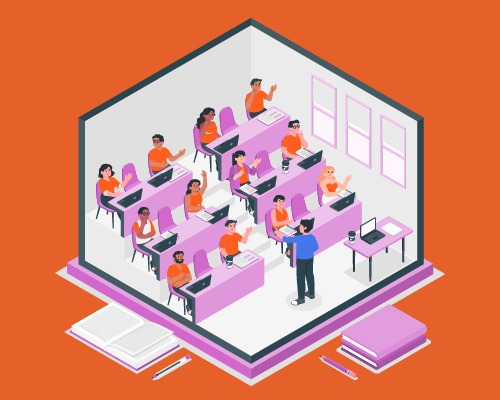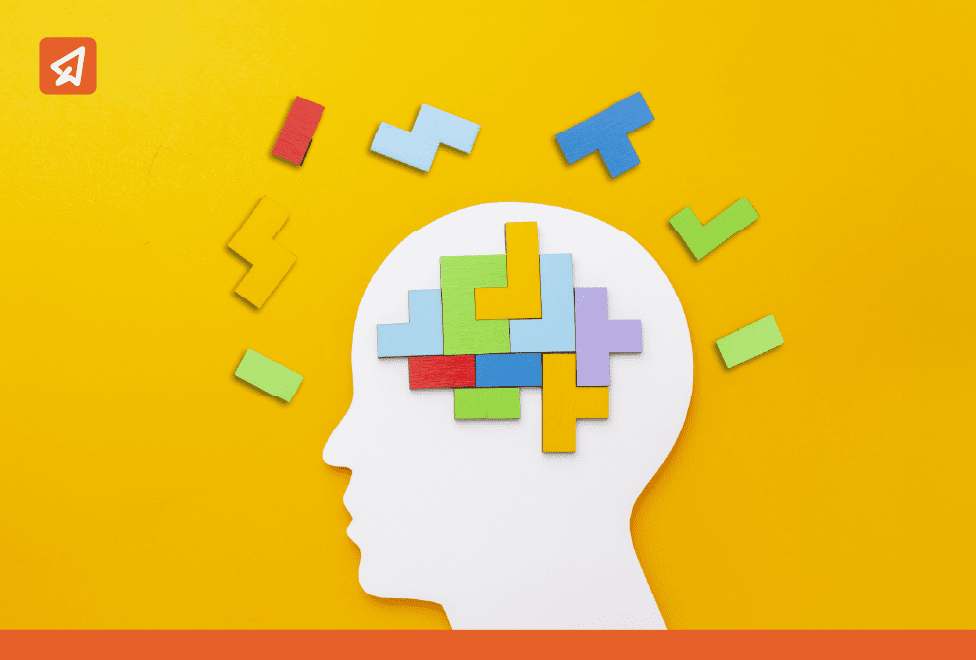Everything You Need to Know About Socio-emotional Learning

Social and emotional learning (SEL) is becoming more important around the world. There’s a strong focus on helping young people grow into informed, caring, and responsible citizens. Schools play a crucial role in developing these skills in students. But what exactly are these skills, and what does SEL really mean?
In this blog, we’ll take a closer look to answer these questions and explore how SEL can shape a child’s development within the school environment.
What Is Socio-Emotional Learning?
Socio-emotional learning (SEL) is about helping people of all ages understand and manage their emotions. It teaches skills like setting and reaching positive goals, showing empathy for others, building healthy relationships, and making responsible choices.
Recently, SEL has become an important focus in India. The New Education Policy, launched this year, emphasises the importance of socio-emotional learning for a child’s overall development. This is a positive move forward. Additionally, the Health and Wellness Curriculum for School-Going Adolescents, introduced in February 2020 as part of the Ayushman Bharat scheme, is designed to support the complete well-being of adolescents, ensuring they grow into healthy adults.
The push for socio-emotional learning isn’t just happening at the national level; state education departments are also prioritising it. For example, Delhi and Uttarakhand have introduced a “Happiness Curriculum” aimed at enhancing students’ mental health. This curriculum focuses on mindfulness, critical thinking, problem-solving, and building relationships. In Jharkhand, there’s a program called UDAAN, which provides adolescents with knowledge about life skills and reproductive health, helping them transition smoothly into adulthood.
Important Socio-Emotional Learning Areas
-
Self-Awareness
Self-awareness is often seen as one of the most important skills in social-emotional learning. It’s about being able to recognise your own feelings, thoughts, and values and understanding how these affect your behaviour in different situations.
According to a Landmark Outreach article, some important skills linked to self-awareness include the ability to identify your emotions, have a realistic view of yourself, believe in your ability to reach your goals, and recognise your strengths and weaknesses.
Building self-awareness also means taking time to think about your own biases and beliefs. This helps create a mindset focused on personal growth. For students, self-awareness is all about looking inward and understanding who they really are.
-
Self-Management
Self-management is about how well we handle our feelings, thoughts, and actions, especially when faced with different situations. It builds on our self-awareness and is important for reaching our personal goals. According to the CASEL framework, self-management means being able to control our emotions and behaviours in various circumstances effectively.
The Greater Good in Education highlights that self-management is a process where students learn to deal with their thoughts and feelings. This skill helps them make choices that are good for themselves and others around them.
Key skills tied to self-management include setting personal goals, staying focused, controlling emotions, showing resilience, and using feedback to improve. By developing these skills, individuals can better navigate challenges and progress in their personal growth.
-
Social Awareness
Social awareness is an important part of social-emotional learning. It’s different from self-awareness, which is all about understanding yourself and your actions. Social awareness focuses on being aware of others and showing compassion toward them.
This skill involves being able to empathise and understand where other people are coming from. For instance, it includes recognising different perspectives and appreciating the diversity of people’s backgrounds and cultures.
One way teachers can help students grasp social awareness is by discussing the idea of The Golden Rule. This simple principle suggests that we should treat others the way we want to be treated ourselves. This approach encourages students to think about their interactions and helps them build a sense of empathy and understanding towards others.
-
Relationship Skills
Relationship skills are an important part of social-emotional learning. These skills involve building and keeping positive relationships with others while learning how to communicate effectively. It also includes managing peer pressure in a healthy way.
A key part of relationship skills is working well with others to reach common goals. It also means learning how to solve problems together and handle conflicts, which helps students when working in teams or with a partner.
Developing leadership skills is another big focus. This includes not just leading a group toward a goal, but also standing up for others and understanding fairness and social justice.
-
Responsible Decision-Making
Responsible decision-making is about making good choices that are safe, caring, and thoughtful. This skill helps students think about how their actions affect themselves and others. It’s about weighing the pros and cons of different decisions and being aware of the possible outcomes.
In school and everyday life, responsible decision-making means thinking through the results of your actions. It helps students understand that their choices can have emotional, social, physical, and intellectual effects. Positive decisions lead to growth and improvement, while poor decisions can cause problems. Teaching students this skill helps them make better choices that lead to positive change.
Importance of Socio-Emotional Learning in India
Socio-emotional learning (SEL) is becoming more important in India’s education system. It focuses on helping students develop skills like understanding emotions, building positive relationships, and making responsible decisions. These skills are important for handling everyday challenges and becoming better learners. By including SEL in schools, students not only grow academically but also improve their ability to work with others, deal with stress, and make better choices.
In India, where students often face pressure to perform well in exams, SEL helps by creating a balanced approach to education. It encourages emotional awareness and empathy, which can reduce anxiety and improve overall well-being. When students are emotionally strong, they can focus better and manage schoolwork more effectively. Schools that focus on both academics and emotional growth give students the tools they need for success in school and beyond.
| Aspect of School Life | Traditional Approach for Special Needs | Teaching Social-Emotional Skills in the Curriculum | Whole-School Perspective |
|---|---|---|---|
| Focus Area | Helps individual students with identified needs by offering special programs and external referrals. | Focuses on giving all students social and emotional skills through regular lessons. | Looks at the entire school’s environment, including relationships, values, physical space, and the larger community. |
| Definition of Quality | Making sure that the right process is followed to support students with special needs. | Ensuring that social-emotional lessons are effective for every student. | Making sure that all parts of school life work together to support emotional well-being and learning. |
| Main Objective | To address and fix issues for students with specific needs. | To teach every student important emotional skills and address problems along the way. | To promote overall emotional well-being and skills for students, staff, and even the community, preventing future issues. |
| Timing of Support | Quick, short-term solutions to deal with immediate problems or crises. | A long-term approach that starts early and helps all students build social-emotional skills. | A long-term strategy that involves everyone, from students to teachers and parents, focusing on both skills and emotional health. |
| Understanding of Problems | Focuses on students’ behaviour issues and how to manage them. | Focuses on developing emotional understanding and attitudes that affect behaviour. | Looks at both the school environment and students’ emotions, beliefs, and behaviour. |
| Role of Parents and Community | Parents and community members provide support when asked by the school. | Parents and the community are more involved in decision-making and school activities. | Parents and the wider community play an active role in the school, contributing to overall well-being and emotional support. |
| Interaction with External Agencies | External agencies are used to help students with serious issues or needs. | External agencies help in teaching social-emotional skills or provide special services. | External agencies work closely with the school, helping with teacher training, parent programs, and other activities to support the entire school. |
How To Implement Socio-Emotional Learning In Schools?
To create a social-emotional learning (SEL) program that’s fair and welcoming to everyone, organisations can take a few key steps:
- Reviewing the Curriculum: It’s important to go through the current SEL lessons to make sure they don’t reinforce any stereotypes and that they reflect different communities and life experiences. The activities should be adaptable and open to all students, no matter their background.
- Training Staff: The people leading the SEL sessions need to understand how different aspects of a person’s identity can affect their experiences. Offering training on gender issues, the effects of social systems like caste, and encouraging self-reflection can help them be more aware of privilege and inequality.
- Reworking Assessments: Instead of comparing students to a set standard, assessments should focus on individual progress and growth. Students facing hardships or coming from marginalised communities might need different types of assessments to better show their improvement.
- Building a Diverse Team: It’s essential to have a team that represents the various communities being served. A diverse team brings in different viewpoints and helps create a more inclusive program.
- Implementing Fair Policies: Policies should take into account the specific challenges faced by team members from marginalised backgrounds. Fair evaluation and benefits systems can ensure that everyone has equal chances to grow and succeed.
- Providing Ongoing Support: SEL programs should continue to support young people even after they leave the program, helping them deal with discrimination as they grow older.
- Partnering with Government Schools: Working with government schools, especially those with marginalised students, is key. Strengthening the public education system’s ability to understand and address these issues will lead to a more fair and inclusive learning environment.
How Extramarks Smart Class Plus Promote Socio-Emotional Learning?
Extramarks Smart Class Plus helps students build important social and emotional skills through its different features:
- Interactive Digital Content: The content is designed to be engaging, encouraging students to participate and work together. This helps them practice communication, teamwork, and understanding others.
- Game-based Learning Activities: These games allow students to work on problem-solving and critical thinking in a fun way. They also encourage students to interact, helping them connect and collaborate with each other.
- Classroom Management Platform: This platform gives teachers the tools to create a positive learning environment. By promoting respect and safety, it helps students feel valued and comfortable, which is key for their emotional growth.
Closing Thoughts
Socio-emotional learning is essential for nurturing well-rounded individuals who can thrive in today’s world. As schools embrace these skills, they equip students to better understand themselves and others. This focus on emotional growth not only enhances academic success but also prepares young people to face life’s challenges with confidence. By prioritising SEL, we can foster a generation of caring and responsible citizens.
Last Updated on February 4, 2025
Reviewed by

Prachi Singh | VP - Academics
Prachi Singh is a highly accomplished educationist with over 16 years of experience in the EdTech industry. Currently, she plays a pivotal role at Extramarks, leading content strategy and curriculum development initiatives that shape the future of education...read more.










